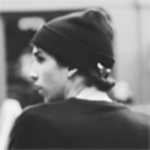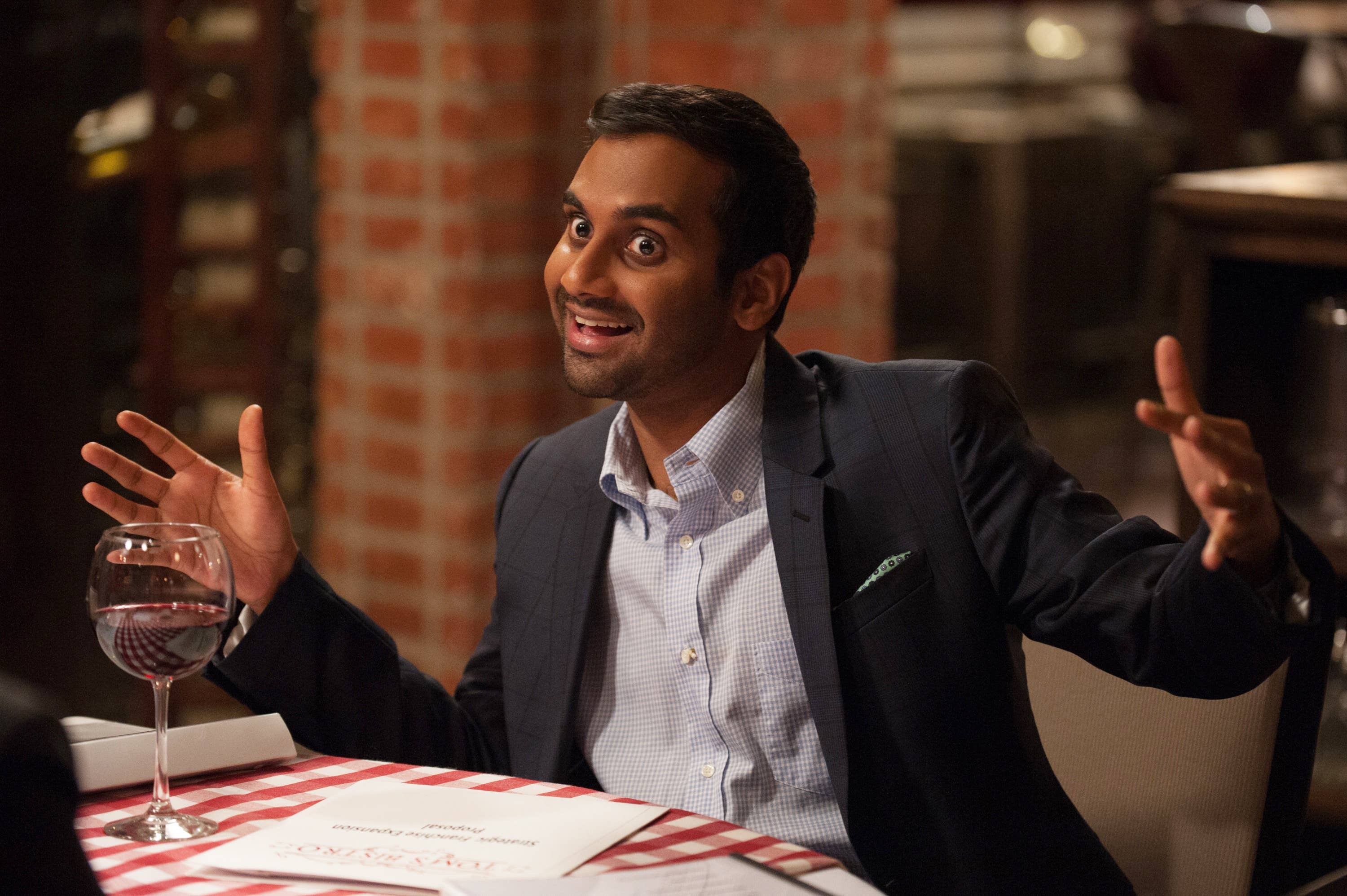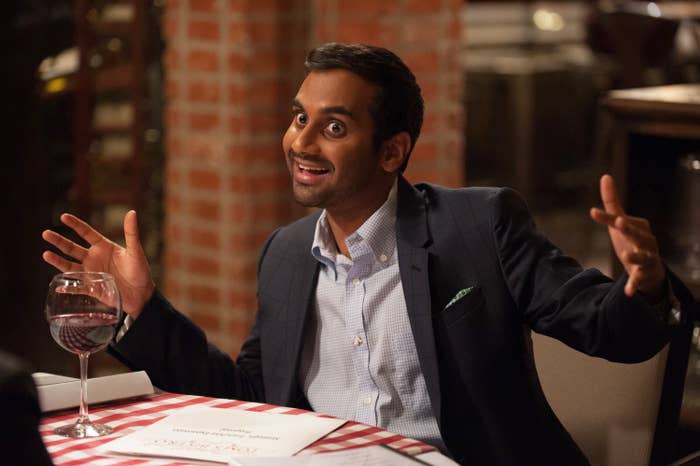
Hip-hop has played an important role in Aziz Ansari's career for years.
Since his days running around on stage with a DJ as rap-obsessed Funny People character Raaaaaaandy and telling jokes about Kanye West, it's difficult to think of anyone who's done a better job of weaving hip-hop and comedy together.
Ansari has shifted some of his focus to romantic themes as he's embarked on projects like his Modern Romance book and hit Netflix series Master of None, but the show's music supervisor Zach Cowie tells us that hip-hop remains a major influence.
"In my mind, this entire soundtrack is from hip-hop," Cowie says. "My approach to music—and I think Aziz's too—is informed by hip-hop."
Ansari, who Cowie calls "a huge music freak," doesn't see the soundtrack as an afterthought. Several of the show's most important moments were written around the music itself. A pivotal point in the show's narrative arc takes place during a John Legend cameo when he sits down at a piano and covers Stevie Wonder's "I Can't Help It." Earlier in the season, Tupac's "Only God Can Judge Me" soundtracks a hilarious flashback that illustrates one of the show's biggest themes.
Cowie explains that Master of None owes its diverse soundtrack to the crate-digging tendencies of guys like J Dilla and Afrika Bambaataa, as it flips from deep cuts like Lucio Battisti's "Amarsi Un Po" to classics like Digable Planets' "Rebirth of Slick (Cool Like That)."
Read our conversation with Cowie below.
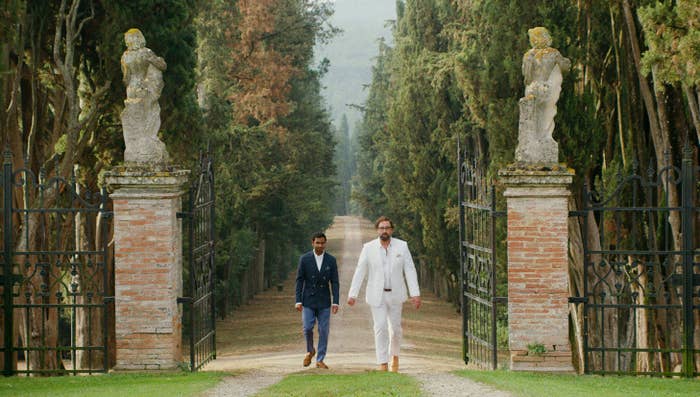
How are music decisions made on the show? How involved are Aziz and the other writers?
This show is super collaborative. Aziz is a huge music freak and it's a big tool for him in his storytelling. I get brought in even before scripts are written. With some other projects I work on, they put me in during post at the end, but with this show, they start sending me the themes before they even start writing. And we start sharing music on a shared playlist between me, [co-creator] Alan Yang, and Aziz. We just start riffing off of each other in that playlist while they're writing. Lots of times things will come straight out of those playlists and into the scripts.
Then there's a lot of stuff that we can't really work on until we know what it looks like. So there is a significant amount of stuff that gets done in post. But this is the deepest collaboration I've ever been a part of. All of us let go of our own ideas and just work together to come up with the best stuff. Some of it's straight from Alan, some straight from Aziz, some straight from me, but the bulk of this is us playing off of each other—pushing each other to find the best thing for the story.
I'm really heavily influenced by a lot of producers and beat makers. J-Dilla is my number one hero.
Hip-hop has been a big part of Aziz’s work for a long time. It seems like he's gone away from that a little recently, but it still feels important. The soundtrack is really diverse, but it does include its fair share of hip-hop. How did you approach that and what role do you think hip-hop plays in the show?
It's interesting you say we're moving away from it, because in my mind, this entire soundtrack is from hip-hop. I'm really heavily influenced by a lot of producers and beat makers. J-Dilla is my number one hero. My approach to music—and I think Aziz's too—is informed by hip-hop.
Our job is to put a message in a package and I look at it in the same way as a producer is to an emcee. The best producers dig through all music. Like, Dilla sampled Stereolab and all that. It's a hip-hop mentality that lets him look at the entire record store—not just these little sections. So, even when we're not directly using hip-hop tracks, the spirit is there. You think of Afrika Bambaataa DJing in the '70s and '80s, he'd play whatever made the party rock. That's kind of where we come from with the music in this show. We try not to think so much about genre and time period. We're just looking for the right thing for the right moment. That's something I learned from Dilla.
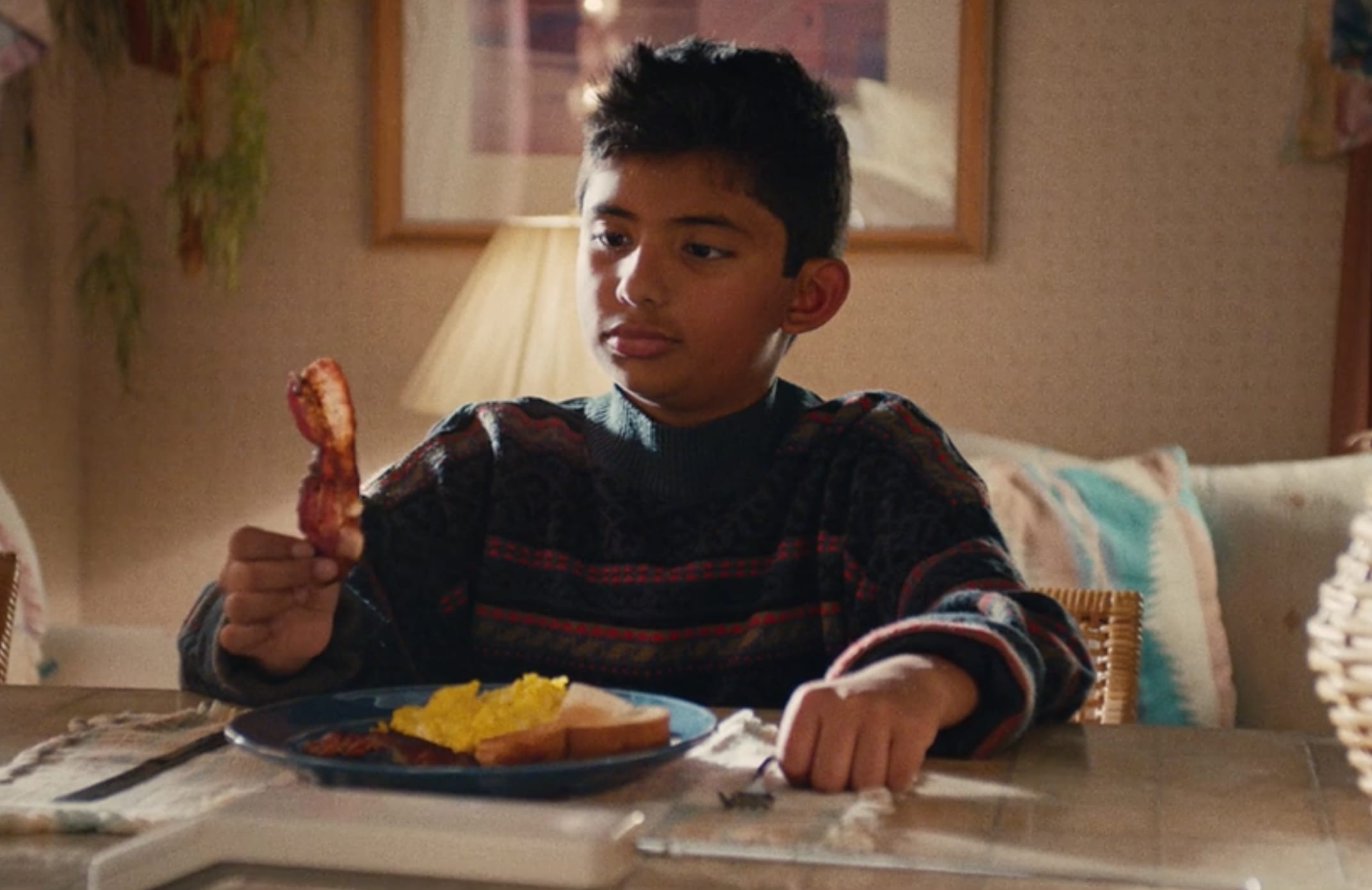
One of my favorite music moments comes in the scene where childhood Dev is sitting there about to defy his mom and eat bacon before "Only God Can Judge Me” by Tupac comes in and soundtracks the moment in a really funny way. Where did that idea come from?
That one was in the script, man. I don't know who thought of it, actually. It was either Alan or Aziz. To be honest, a lot of the comedy cues come straight from those dudes. I think they're just trying to make each other laugh when they're writing. That was in the first draft of the script, and I thought it was such a good idea that I didn't even touch that scene. I was like, "Perfect, let's do it!"
By choosing that song, it felt like you guys were able to make a joke at the same time as you helped push some of the show’s biggest themes about a second-generation immigrant growing out of his parents’ old ways and customs. Can you talk about how you were able to use music to get across some of those bigger themes in the show?
The best cases of that, I think, are the more subtle ones. I always try to avoid "see-say" which is where you hear a lyric that's directly reacting to the action on screen. I think it works best when you think more about themes, feeling, and emotion rather than specifics. That's something I'm really proud of on this show. We're not coming up with our music by searching lyrics on Spotify, you know? [laughs].
We're thinking of overall feelings. When you do that right, it adds a weird magic to it because there's a new feeling that shows up. Like, that Tupac thing, which I love, when you see that and hear that, it's something you've never experienced before. And it sort of elevates it in a magic way. We really push each other to find that stuff and make sure we're not phoning it in with just lyrics.
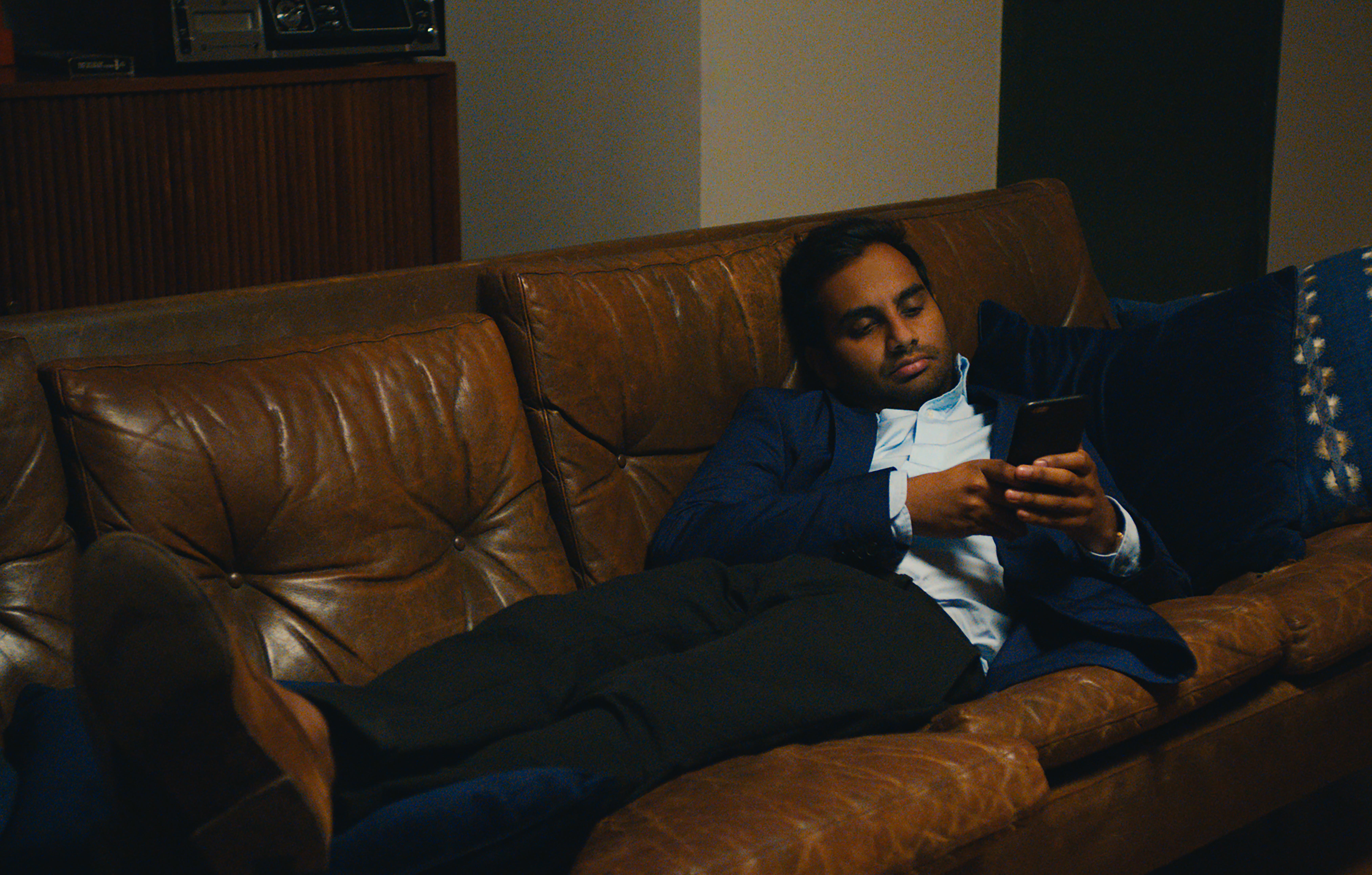
Were there times when a specific song decision came first? Then Aziz and Alan wrote a story around the music itself?
One of the first things Aziz told me when they were getting ready for season two was how he wants to go to Italy. So he asked me for some Italian music. He does this sometimes. He travels a lot and he likes me to just send him stuff from the places he's going to so he can listen while he's walking around.
So I sent him some Italian stuff I really like and one of those songs is "Amarsi Un Po" by Lucio Battisti. It's a killer track from '76. He was really, really famous in Italy but his music never got licensed outside of the country, so he's kind of unknown in the rest of the world. So I sent it to Aziz and it really resonated with him. Then he realized that the translation of it is "to love a bit" which kind of tells the story of Dev and Francesca. So he got kind of locked on that song and ended up naming the ninth episode after it. And we closed the episode with the song. It really ended up informing the episode.
It was really hard to license, which is a whole other story. I have a co-supervisor on the show named Kerri Drootin and she's the licensing master. That one was a ton of work. It took months. But we got the first license of his music, which is really big in supporting this season, which is a love letter to Italy. To take his music for the first time and put it in front of a lot of people meant a lot to us.
AZIZ got kind of locked on that song and ended up naming the ninth episode after it. And we closed the episode with the song. It really ended up informing the episode.
One of the most obvious moments of music shaping narrative was John Legend’s cameo, sitting down at the piano and covering Stevie Wonder in the fifth episode. Why did you guys decide to include that?
That moment is the big turning point for that relationship. That's the second he realizes he's falling for this girl. Aziz knows John Legend and just came up with the idea to have him be playing at this party. It also establishes the type of dude Chef Jeff is too, where he can just call John Legend to a piano [laughs]. We came up with a big list of songs that we thought would be cool for him to sing. Aziz actually thought of "I Can't Help It," which is a Stevie Wonder song, but Michael Jackson made it famous.
When John Legend got the list, that's one that he knew super well and could pull off quickly. He came in, tracked it live, and just blew everyone's minds. Our associate producer still talks about it like every three days. To have a dude that has the charisma to fill a stadium play for twenty people, like, fucked with everyone, man [laughs]. We're in debt to John because that really helped move the story arch with Dev and Francesca. He was just so killer. Everyone loved him.
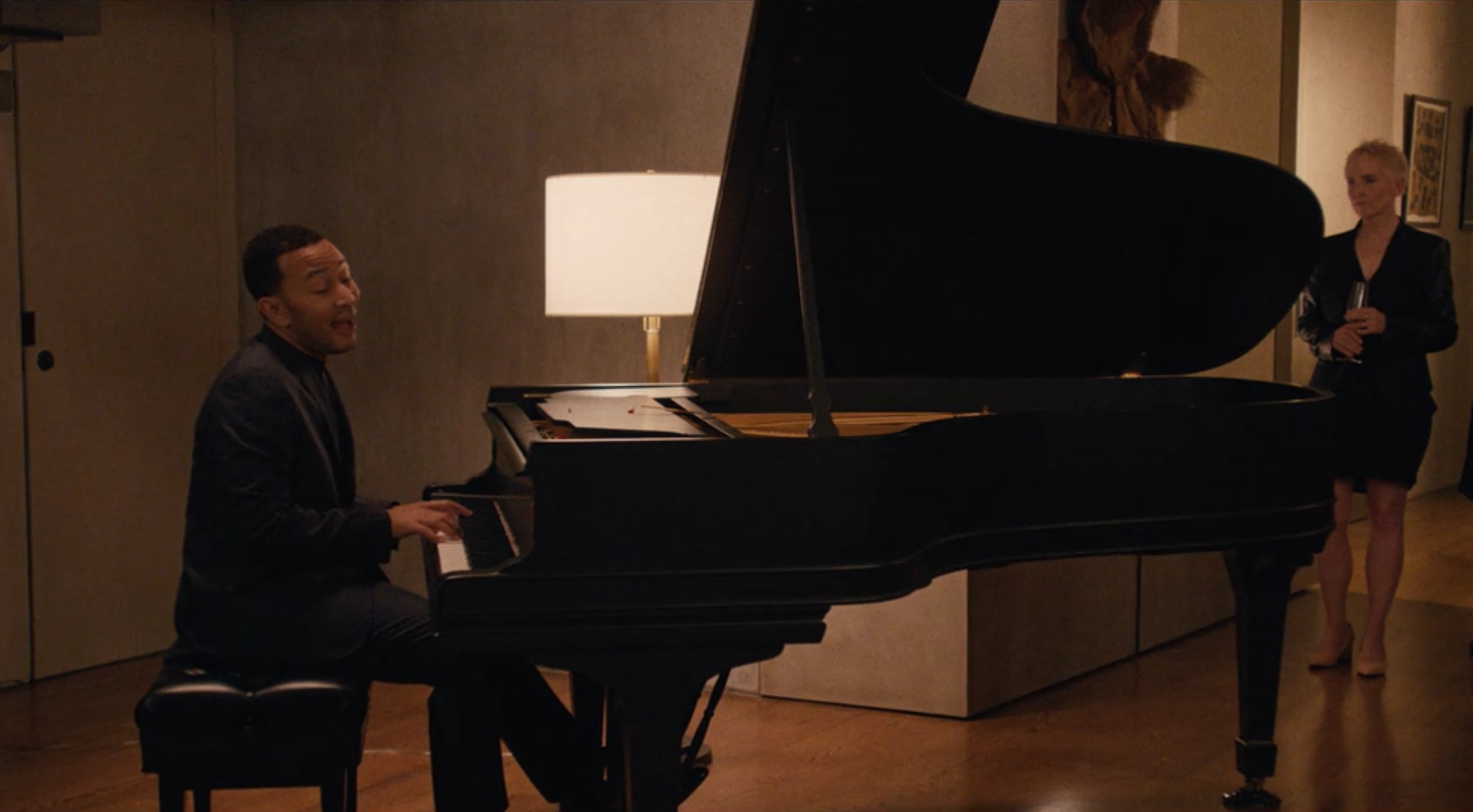
What’s your favorite music moment in season two? Was there a time when things all came together perfectly and you felt the magic happen?
It's one that I can't take credit for. It's the long shot at the end of episode five with the Soft Cell song, "Say Hello / Wave Goodbye."
I can't remember whose idea the long shot was. That's what so cool about this show—we've all totally lost track of who thought of what because we're all working so hard together to blow each other's minds. But once the long shot got sent out, we were talking about what to do there, and the first thing Aziz said was that Soft Cell song. The editors synced it up and the second we all saw it, we were like, "Oh fuck, yeah, that's in." That scene is one of my favorite scenes I've ever seen, let alone worked on.
that's the best thing I could ask for in this job—that we can make an amazing moment and that people like so much that they'll go seek out the song.
What's been really amazing is with the first season, none of us knew if people were going to like this show. So it was mind-blowing to have it so well received—especially the music. I started to notice from some friends of mine when they'd say, "Holy shit, dude. Did you notice this thing got like 200,000 Spotify plays this week?" So, I took screen grabs of the play counts on some of the songs and it's amazing to see things like how many people listened to that Soft Cell song this week. To me, that's the best thing I could ask for in this job—that we can make an amazing moment and that people like so much that they'll go seek out the song.
It's funny, there were a lot of people who thought it was a David Gray cover, but it was the other thing around. That's a big thing I've noticed, man. With everything available now, there's no context to music anymore. And I think it's so funny to have to correct people all the time. There were so many people in season one who were like "Oh, they ripped off Dre in the last episode." It's like, "No, that's what Dre sampled to make "The Next Episode.”
The soundtrack has a nice mix of obscure choices next to bigger, more recognizable names. Was that intentional?
The community that I come from—record collectors, DJs, record label people—all my friends know all this stuff. I'm trying to act as a bridge between a massive Netflix audience and a tight community of archivists. So, in order to do that in a way that's effective, you have to make it approachable. And a good way to do that is to throw in some things that a lot of people know. Then that makes people feel safe checking out some of the stuff that is unknown.
Like I said, we're working to serve this story, but there are nice times to use things that are familiar to everybody to kind of anchor it. Being able to do the Thanksgiving episode was a great opportunity to do that. It's a '90s flashback episode, so of course you're going to use hip-hop and R&B. Opening that with Digable Planets got everybody in.
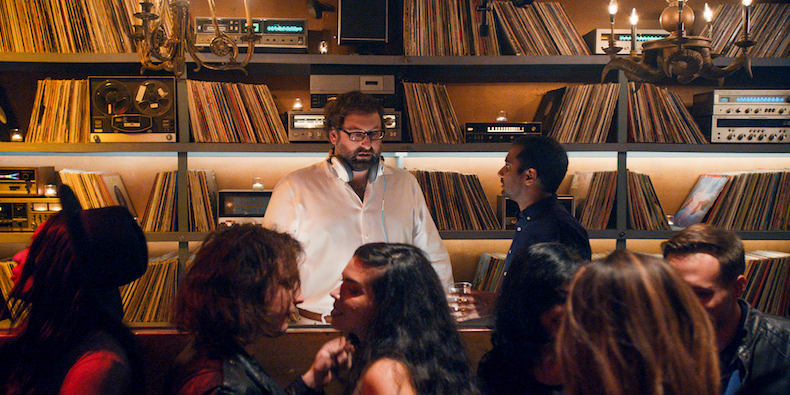
When you list out all the songs from the whole season, it’s a really diverse collection. But each episode does kind of have its own energy and theme (as well as its own intro theme song). Did you think of each episode as its own entity, or did you try to make sure the music fit across the whole season, too?
There are certain things that you have to put together. Like, in my head I think of episodes nine and ten as a movie that's stuck at the end of a season of TV. Obviously, episode six—the New York episode—is a real standalone. So, we do think of them more as little films. Then, we think of something that ties it all together.
Even though the music is from different times, countries, and genres, the fact that it got approval from all of our ears, in a weird way makes it all fit together. I feel like we all appreciate these little gems that hit hard when you hear them, but then if you spend more time looking into them, there will be a whole doorway to other things that'll open up. You know, I'm secretly trying to educate people, too, while also trying to entertain them [laughs]. That's something that goes through the whole show. It's in the subject matter and the writing, too. We're trying to open people up and make them feel something, which is weirdly kind of rare now that it's so easy to just be cool. So, we're trying to make little special moments and it is easier to do that if you think of these as little individual pieces.
I was so psyched that so many people thought we were using "Fade" from Kanye West there and got to correct them that it's "Mystery of Love" from Mister Fingers (which Kanye samples).
People discover music in all kinds of ways now. Do you ever think about your role in music discovery? Do you keep it in mind that people will be Shazam-ing this stuff and you’re introducing cool stuff to people who never would have heard some of this music otherwise?
Absolutely. It's not what drives the ideas—because my number one job is to serve the scenes and the stories—but when I find something that does that and is also sort of under-appreciated or will lead people into discovering something totally new, I'll always go that road. That's what I did for ten years of my life, working with all these bands and re-issuing these records. But when the record business started to change, I saw moving into supervision as the next place to do that. It's the new way for people to find stuff. I feel that's a big responsibility in my hands and I'm trying to turn people on to things. The response to this season has been insane, so it seems to be working [laughs].
If you look at the club scene in our ninth episode, I was so psyched that so many people thought we were using "Fade" from Kanye West there and got to correct them that it's "Mystery of Love" from Mister Fingers (which Kanye samples). So if one of those people Googles Mister Fingers, they're going to learn about the origins of house music. I want everything to have two or three layers of meaning to it. But again, I have to serve the story and it has to be something that works right away, because you can't expect everyone to do that kind of research.
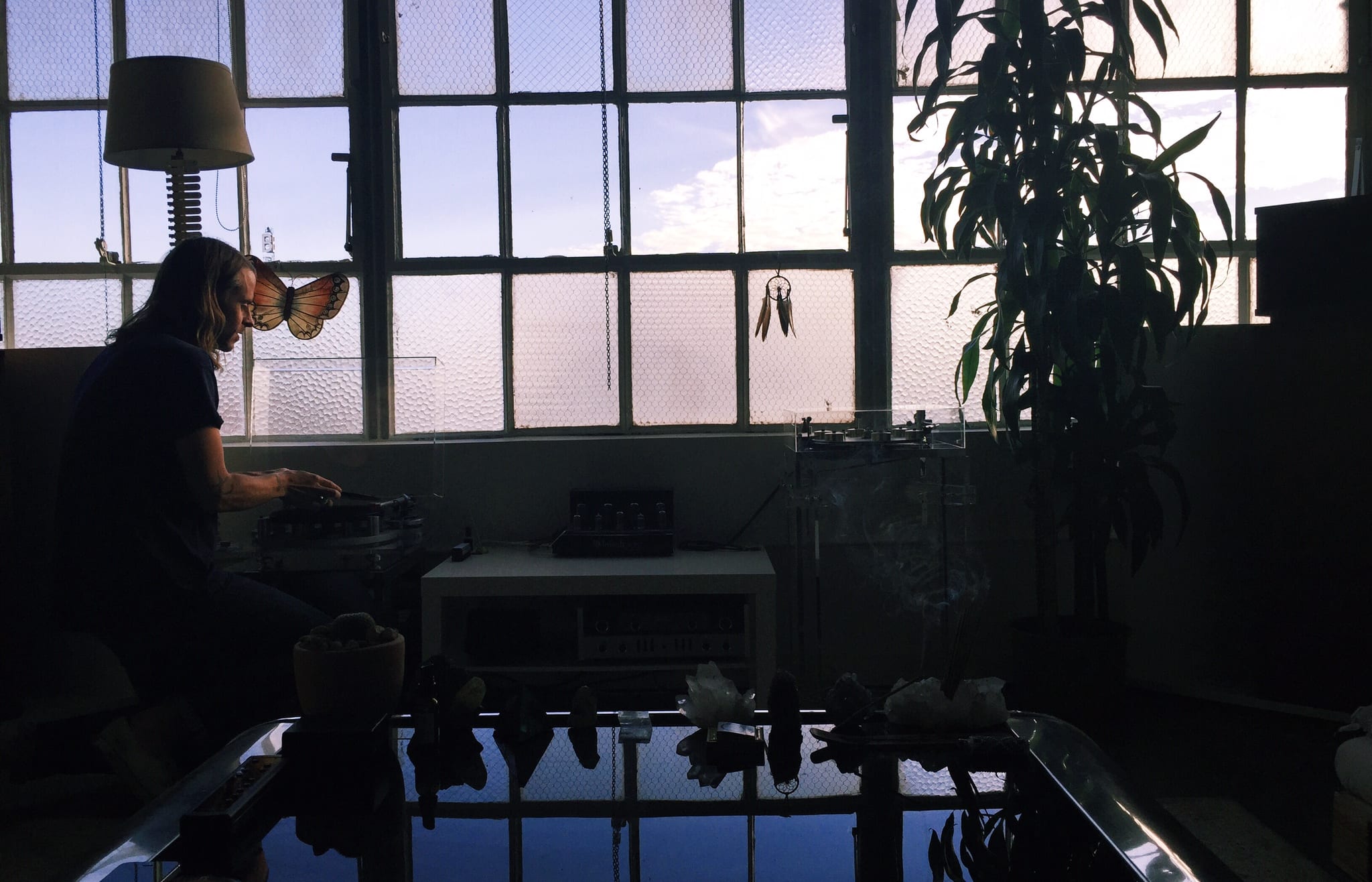
Your job is a dream for a lot of people. Can you talk about how you got into this and then how you met Aziz and got hooked up with this project?
I'm 36 but I had a whole other career before I started supervising. For all of my 20s, I worked for a lot of record labels doing all sorts of different jobs. I worked at four labels. Touch And Go in Chicago, Sub Pop in Seattle, Drag City in Chicago. And I came to L.A. to work for Rhino, which is the catalog division of the Warner Music Group. But through all of that, I've always been a record collector and a DJ.
I always wanted to be a supervisor. I think everybody who likes music wants to do it when they know that it's a job, but nobody knows how to start. I just got super lucky. Just through DJing and also, I produce re-issues, too. So, between all of those things, I had just put a lot of music into the world and I got so lucky with some of the people that noticed. And they started offering me indie movies to work on—things like that.
I met Alan and Aziz about five years ago, just DJing around L.A. When they got this show, Alan just texted me, like, "Is this something you'd ever want to work on?" I responded immediately. Then we did season one.
the things I did that got me here was to just always be putting music in the world.
Can you share any advice for people hoping to get a job like yours some day?
It was total luck for me. But if I have to retrace my steps, the things I did that got me here was to just always be putting music in the world—through DJing, mixtapes, and also just studying the shit out of film. So many of the best things we'll ever see have already been done. That goes for listening to music, too. The best thing you can do to get into this is to just educate yourself. When the job shows up, the more you know about it, the better your vocabulary is in telling these stories. I didn't even know that I was doing it, but 20 years of record collecting is what made me be able to do this job.
There really is a lot of luck. And there's a ton of business stuff to learn, too. I got lucky from being in the record business, learning the other side of it. But even now, there's a ton of stuff I'm really shaky with. But [co-music supervisor] Kerri Drootin is there, to help me through that, if not doing all of it [laughs]. That's the part of this job that no one really talks about—is how much paperwork, research, and negotiation is involved.
